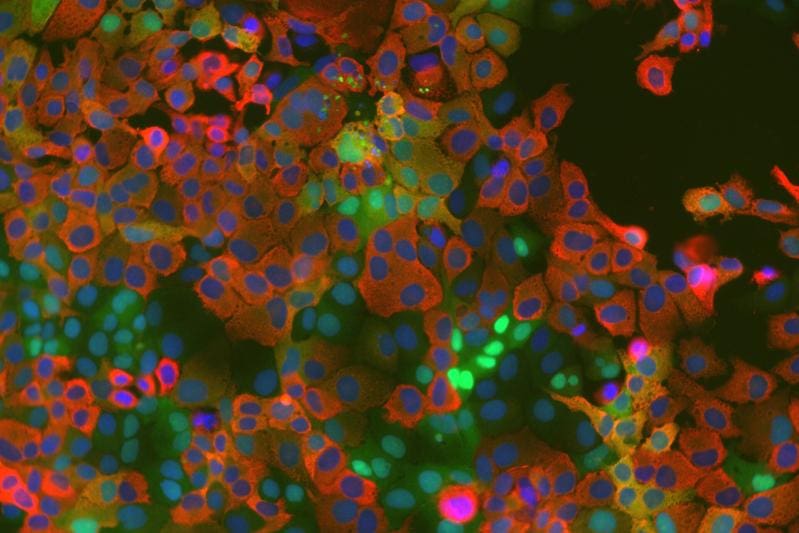Bochum researchers discover cellular mechanism in coronaviruses
A team at Ruhr-Universit├żt Bochum has identified a previously unknown cellular mechanism that is crucial for the replication of coronaviruses. The c-Jun N-terminal kinase (JNK) is activated during infection with the human coronavirus HCoV-229E and controls the phosphorylation of the viral nucleocapsid protein, a central step in the viral cycle. These findings improve the understanding of virus-host interaction and could open up new approaches for antiviral strategies in the long term.
The results come from a team led by Yannick Br├╝ggemann and Eike Steinmann and were published in the journal npj Viruses on September 18, 2025.

Using live cell microscopy, quantitative immunofluorescence and biochemical analyses, the researchers showed that JNK is specifically activated in infected cells. With a kinase translocation reporter, it became apparent that JNK activity increases sharply about 16 hours after infection. When the kinase is blockaded with inhibitors, virus production decreases significantly, both in HCoV-229E and SARS-CoV-2.
In cooperation with Michael Kracht’s research group at the University of Giessen, it was proven that JNK phosphorylates certain serine residues on the N protein. These sites are conserved in different coronaviruses, indicating a common role of the JNK in replication. The JNK kinase proves to be an important host factor that is directly involved in the modification of the N protein and is crucial for virus replication. The inhibition of JNK reduces the replication of both viruses and makes the signaling pathway a potential target for new antiviral agents.
The project was developed as part of the LAC Young Scientist Imaging Assay Jumpstarter Contest, which gave the Bochum team access to modern live cell microscopy and enabled the key tests.
Original Paper:
JNK kinase regulates phosphorylation of HCoV-229E nucleocapsid protein | npj Viruses
Editor: X-Press Journalistenb├╝ro GbR
Gender Notice. The personal designations used in this text always refer equally to female, male and diverse persons. Double/triple naming and gendered designations are used for better readability. ected.




